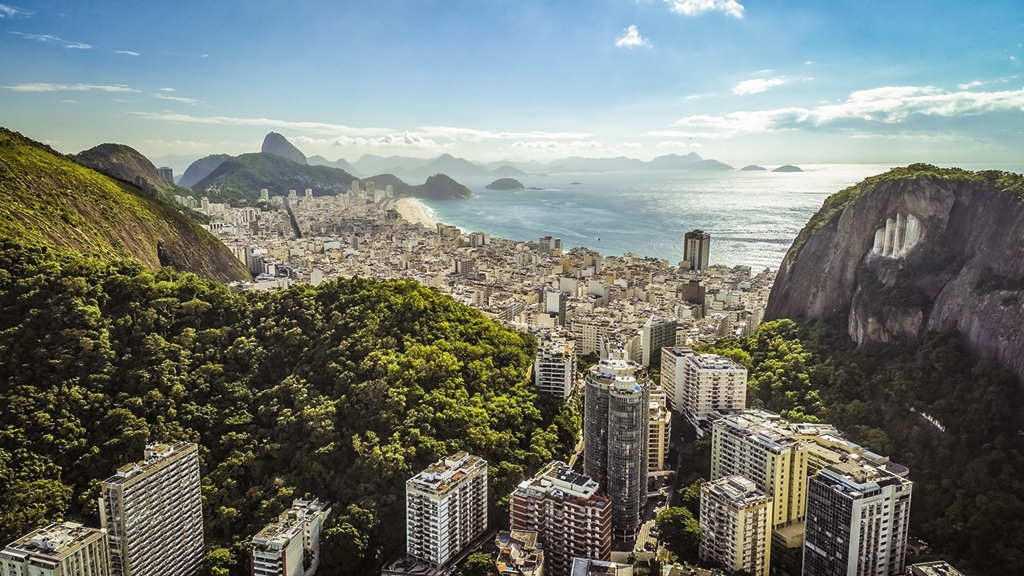RIO DE JANEIRO, BRAZIL – While Covid-19 emptied Rio de Janeiro’s beaches and overwhelmed hospitals, luxury real estate broker Frederic Cockenpot received a flood of inquiries. Businesses were closed and the economy was shaken, but foreign clients would do anything to close deals.

“They were saying, ‘Fred, find something now, I need to send money now,'” said Cockenpot, head of WhereInRio, a brokerage that caters to international clients.
For hard-currency investors, the 21% drop in the Brazilian Real against the dollar since early 2020 has encouraged the search for bargains in the real estate market. They capitalized on exchange rate swings by buying vacation and investment properties, betting that better times will come in a city still trying to overcome the Covid-19 that has fragilized the economy and turned into a major political crisis for President Jair Bolsonaro.
Fabio Canfora, 47, saw the turbulence as an opportunity to acquire a cheap asset. In January, on a trip to look for a property, he bought a 4-bedroom apartment in the heart of Ipanema.
In January, the cost of buying and renovating a vacation property totaled approximately R$1 (US$198) million, roughly half of what Canfora estimated it would have cost when he left the country in 2017. “To be honest, that was unthinkable,” said the Italian energy industry executive and former Rio resident.
Before Brazil hosted the 2014 World Cup and the 2016 Olympics, Rio’s real estate market was comparable to that of New York or Paris. Rio was teeming with tourists and petrodollars, while frantic investors rushed to close deals in the face of the limited number of properties available in the city.
The rush sparked a real estate bubble and the euphoria that the country’s good times, wealthy in natural resources, were here to stay. But the end of the world competitions, the drop in commodity prices, the impeachment of Dilma Rousseff, and the Lava Jato scandal reinforced the sense of collapse.
Real estate prices plummeted, and the Brazilian Real plunged almost 37% against the dollar since the Olympics 5 years ago. But now the real estate market in Rio, as in much of the country, is heating up after the Central Bank cut the SELIC [benchmark interest rate] to boost the economy, which has cheapened financing. Some foreign investors already have a connection to Rio, either as a preferred tourist destination or because they have lived in the city, while those spending at least R$1 million are entitled to long-term visas, which allow them to stay longer.
From January to April, some 13,012 properties were sold, compared to 8,738 in the same period in 2020, according to the Rio de Janeiro Housing Union. The 55% increase is the biggest jump for the first four months of the year since 2013.
The recovery comes as Covid-19 exacerbates a decades-long decline. In 1960, Brazil moved its capital from Rio to Brasilia while São Paulo absorbed jobs and most professionals. In the wake of the pandemic, tourism withered, destroying a key sector for Rio.
But investors like Luc Fontana, 31, a real estate developer in Lille, France, are hoping for a recovery. He has spent over R$2.2 million on a 19th-century house with 8 rooms in the Santa Teresa neighborhood and is converting the property into a boutique hotel.
Fontana, who left Brazil soon after his birth, said the weak Real inspired him to invest in his homeland. “This is my adventure,” he said. “When the pandemic is over, the world will want to visit again.”

